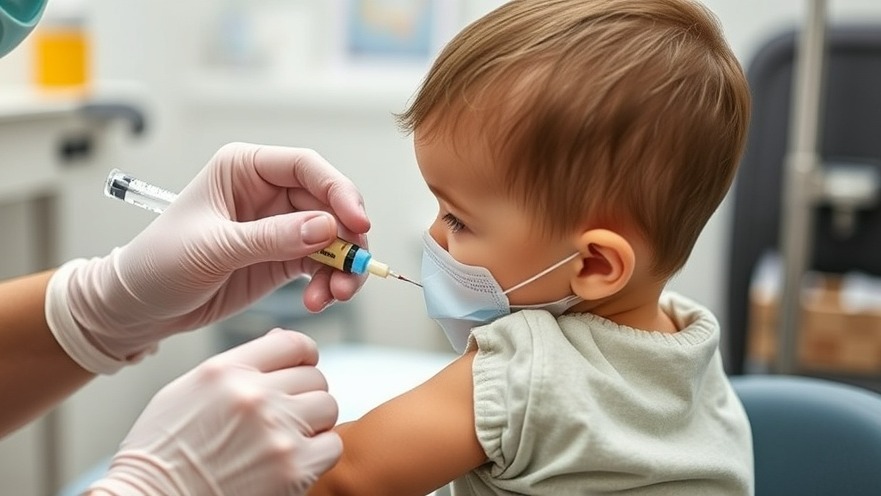
Understanding the Importance of the Rotavirus Vaccine
The rotavirus vaccine is crucial for young children, protecting them from rotavirus, which is notorious for triggering severe diarrhea and vomiting in infants and toddlers. These symptoms can lead to serious dehydration and even hospitalization if left untreated. By vaccinating children, parents and caregivers not only safeguard their health but also contribute to wider community immunity, particularly in settings like childcare centers where outbreaks can be common.
When Should Your Child Receive the Rotavirus Vaccine?
The rotavirus vaccine is administered orally at 2 and 4 months of age, with some brands recommending a potential third dose at 6 months. It is vital that the first dose is given by 15 weeks, and the final dose by 8 months to ensure maximum efficacy. This schedule helps establish immunity during a crucial period when infants are particularly vulnerable to dehydration from gastrointestinal illnesses.
Potential Side Effects: What to Expect Post-Vaccination
Most side effects of the rotavirus vaccine are mild and temporary, including diarrhea, vomiting, and fever. While there is a rare risk of intussusception, a bowel blockage that may occur within a week of the vaccination, it is much more common for rotavirus itself to cause this issue. The benefits of vaccination far outweigh the risks, contributing to a healthy community.
Addressing Common Concerns About the Rotavirus Vaccine
It's normal for parents to have concerns regarding vaccinations, especially if their child has had allergic reactions or suffers from immunodeficiencies. It's essential to have thorough discussions with healthcare providers to assess any potential risks versus the benefits of vaccination. For many families, these conversations enhance trust and promote informed decision-making.
How You Can Support Your Child Post-Vaccination
After administering the rotavirus vaccine, monitoring your child for any side effects is key. Providing plenty of fluids and being attentive to symptoms of dehydration can greatly assist in recovery. Parents should not hesitate to consult their pediatrician if concerns arise in the days following the vaccination.
Leveraging Wellness Education to Enhance Patient Relationships
For healthcare providers, educating patients about the importance of such vaccines is vital. Establishing oneself as a trusted source of information can significantly enhance patient relationships and practice reputation. Offering accessible, empathetic communication can reassure parents about the health of their children while demonstrating a commitment to overall wellness.
In summary, the rotavirus vaccine plays an essential role in childhood health, preventing serious illness and fostering a healthier community. Taking proactive steps in patient education not only empowers families but also helps practices flourish. If you want to stay ahead in patient wellness and community health discussions, consider incorporating comprehensive education about vaccinations into your practice.
 Add Row
Add Row  Add
Add 




Write A Comment